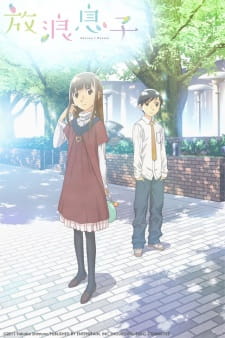Alternative Titles
Synonyms: The Transient Son
Japanese: 放浪息子
English: Wandering Son
German: Hourou Musuko: Wondering son
Spanish: Wandering Son (Hourou Musuko)
French: Hourou Musuko: Wondering son
Information
Episodes:
11
Status:
Finished Airing
Aired:
Jan 14, 2011 to Apr 1, 2011
Broadcast:
Fridays at 01:15 (JST)
Duration:
23 min. per ep.
Rating:
PG-13 - Teens 13 or older
Statistics
Score:
7.681 (scored by 4302043,020 users)
Ranked:
#1369 2
2
based on the top anime page. Please note that 'Not yet aired' and 'R18+' titles are excluded.
Popularity:
#1811
Members:
134,256
Favorites:
1,085
Available AtResources
|
|








































